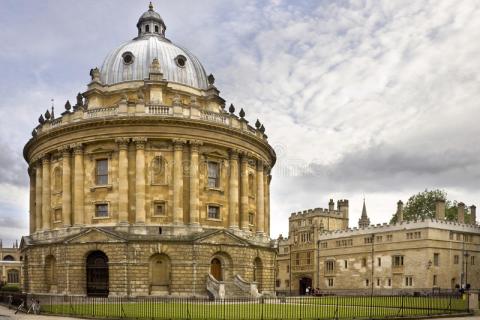You've come so far and done so much! Congratulations on researching programs, gathering supporters, writing essays, and getting it all in. After you've submitted your application, we'll present it to the Faculty Committee on Student Fellowships to review. They will read your application carefully, but they also want to meet you! We will invite you to a 20-minute interview, either in person or over Zoom, with at least three members of this committee plus the fellowships office staff.
What is the interview like and what is its purpose? The interview is friendly. The faculty want to learn more about you. They will likely ask for more detail about your academic interests and professional goals, as well as about some of your leadership activities. They may ask questions about what you hope to change in the world based on what they know about the issues involved. We'll send you more info about this before the interview.
The purpose of the interview is to add to what they've already learned about you from the written application. They want to get a sense of you as a person, assess your ability to articulate your goals and intentions, and see how you interact with others. These observations along with your written materials, academic record, and recommendation letters, will all factor into the endorsement decision.
What is endorsement? After your interview, the faculty will discuss whether or not to endorse you as an AC applicant for the Rhodes. The decision is made based on how you measure up, in their view, to the Rhodes criteria, both academically and personally. There is no limit on the number of applicants that the college may endorse. However, endorsement is not guaranteed. As an applicant, you should prepare yourself for any outcome. Shortly after the interview, you will receive an email from Christine letting you know about the decision.
YOU WERE NOT ENDORSED
We get it. Not being endorsed is disappointing. But it is not a marker of your overall worth or even your potential for winning another kind of award! Sometimes students apply for several fellowships before winning one. Almost all applicants say that the application process made them understand themselves and their goals better, and that's a win! This isn't the end of your journey with fellowships (unless you want it to be). Consider:
Exploring Other Fellowship Opportunities
Meeting with Christine to discuss other options and receive support (we care about you!). We can't divulge the
reasons for the committee's decision, but we can help you think about how to grow from the experience.
YOU WERE ENDORSED
If you have not already done so, quickly register for a Rhodes Embark online application so you can upload your materials and enter the names of your recommenders, including the name of the endorser: Amherst College President Michael A. Elliott, but use the email address: coverstreet@amherst.edu. Choose "Endorsement" as the referee type. Trigger the email to be sent immediately. The director of fellowships will upload the endorsement letter in time.
In the same portal, enter your recommenders' names and contact information and trigger those requests. (Write to them separately beforehand to tell them the good news about your endorsement, thank them, and remind them that the letters need to be on institutional letterhead and signed. You can copy and paste the instructions from the bottom of our Rhodes Overview page for details on the letter format and questions they will be asked in the Rhodes portal.)
Make any revisions you see fit to make to your personal statement (we will not send you feedback on that), the academic essay (we will send feedback on that), and your resume/CV, and upload them along with the other materials you have prepared.
Submit your application by September 27th, 2023.
